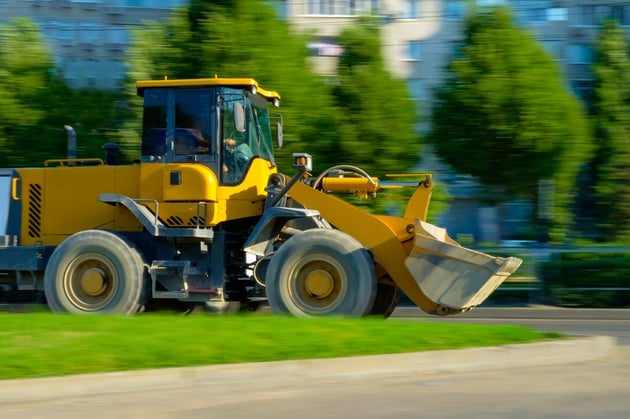Tips for Choosing an Application-Specific Construction Tire
The old saying that time is money rings particularly true when thinking of today’s construction industry. With an abundance of work and a shortage of labor, construction business owners need to make the most of every moment to maximize profits. One easy way for them to do so is by outfitting their equipment with application-specific tires.

Go to class
To help make selecting construction tires easier, they’re classified as E for earthmovers (such as scrapers and articulated or rigid dump trucks), L for loaders and dozers, or G for graders. Some tires, like the Galaxy Giraffe, are rated to meet the needs of more than one classification.
Roadability
Based on their design, construction, and rubber compounds, which are optimized for the kind of job each type of equipment is expected to do, E-, L-, and G-rated tires also have restrictions on how far and fast they can travel. So having a good sense of whether the machine will be trailered or roaded from job to job is important. E tires have a range of 2.5 miles and can be operated at a maximum speed of 30 mph, while a G tire is capable of operating at speeds up to 25 mph and is unlimited in the distance it can travel. L-rated tires are designed to travel 250 feet at 5 mph.
Matching Tread to Terrain
Machines that spend the majority of their time operating in soft soil or mud benefit from a tire with deep lugs. Construction tires featuring deep lugs provide traction, have the ability to self-clean, and help reduce slippage. They can also help prevent a machine from getting stuck and costing your operation valuable time and money.
For machinery that primarily runs on hard surfaces, a tire with a block-type tread is an excellent choice. Block-type treads offer a more comfortable ride, improve fuel economy, and wear better on hard surfaces. Additionally, their increased rubber-to-void ratio reduces the chances of suffering a flat.
A Solid Thought
If your machines operate in places where the puncture hazard is high—for example, a demolition site—a solid tire might be the correct choice. Solid tires are virtually puncture-proof, making them ideal for reducing downtime and keeping machines moving in the construction industry's most hostile environments.
Take Notes
One of the simplest ways to make the most out of your tires is by taking notes and putting that information to work. By capturing as much data as possible about how your machines are used, you’ll be able to make an informed decision and unlock your equipment’s full potential when it comes time to purchase new tires.
By understanding what your operation asks a tire to do, you can maximize efficiency, increase productivity, cut fuel costs, and reduce downtime. Most importantly, you can increase profit! We pride ourselves on manufacturing application-specific tires purpose-built to meet the needs of our customers. Contact your dealer today to find your perfect tire.

